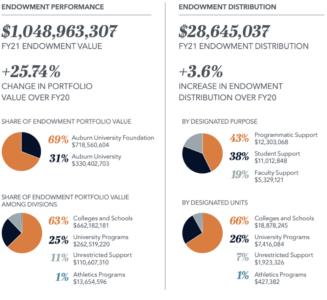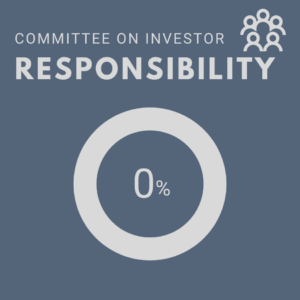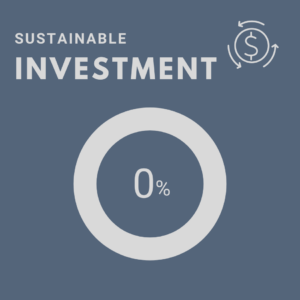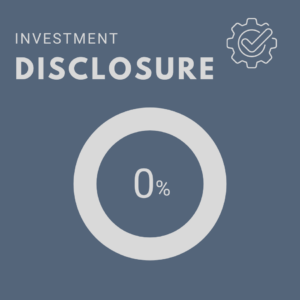By Randy Martin
 The role of a university endowment is to invest donated money and gifts and use the returns to fund school operations. The role of those charged with this task must utilize their abilities and all the tools available to them to make sure the university gets a steady stream of money for the foreseeable future. This is an excellent way to help grow the institution, pay for operating expenses, or help with any needs that arise. According to the National Center for Education Statistics, in fiscal year 2020, US university endowments made up around $691 billion. Similar to the purchasing power of universities, the investment power of universities is enormous. Auburn’s endowment for fiscal year 2021 totaled slightly above $1 billion.
The role of a university endowment is to invest donated money and gifts and use the returns to fund school operations. The role of those charged with this task must utilize their abilities and all the tools available to them to make sure the university gets a steady stream of money for the foreseeable future. This is an excellent way to help grow the institution, pay for operating expenses, or help with any needs that arise. According to the National Center for Education Statistics, in fiscal year 2020, US university endowments made up around $691 billion. Similar to the purchasing power of universities, the investment power of universities is enormous. Auburn’s endowment for fiscal year 2021 totaled slightly above $1 billion.
STARS* connects the Investment and Finance credit to the following United Nations Sustainable Development Goals:
- Goal 8: Promote sustained, inclusive, and sustainable economic growth, full and productive employment, and decent work for all
- Goal 16: Promote just, peaceful, and inclusive societies
Subcategories:
- Committee on Investor Responsibility: Typically, the investment decisions fall to people hired outside the institution. The idea of this credit is for those inside the institution, those who are setting the goals and agendas, and hiring the managers, to have an open dialogue with multiple stakeholders from in and around campus.
Auburn’s Score: 0/2
- Sustainable Investment: How much of your endowment is being spent in a responsible, sustainable manner? That could mean battery and wind turbine companies, sustainable forestry, ESG (Environment, Social, Governance) funds, or many other options.
Auburn’s Score: 0/5
- Investment Disclosure: Institutions that publicly disclose their endowment’s investment portfolio earn credit in this subcategory.
Auburn’s Score: 0/1
Reflection:
This criterion is STARS’ underperformer. Most institutions either do not pursue this credit or have very low scores. What sounds easy on the surface may actually prove to be a monumental task. Often, these endowments are separate entities from regular operations and can be difficult to influence. Thankfully, STARS has stepping-stone points available.
There are three ways to increase our score by around 3 points.
Step one is to establish a Committee on Investor Responsibility. This committee would be made up of multiple stakeholders from the campus community, including but not limited to academic staff, non-academic staff, and students. The job of this committee would be to make recommendations to “fund decision-makers on socially and environmentally responsible investment opportunities across asset classes, including proxy voting (if the institution engages in proxy voting).” That’s it – the creation of an active committee that makes recommendations to decision-makers. The decision-makers can choose to do whatever they want, but at the very least, they would have a multi-stakeholder committee advocating for opportunities they might not be thinking about.
Step two is even more simple. The endowment board would need to disclose their investments publicly each fiscal year.
Step three builds off of step two. Without changing a single investment policy or purchase, we could disclose all our “sustainable industry” investments, meaning shares of companies whose entire business is in “sustainability,” such as renewable energy, electric cars, etc.
The most unfortunate part about our performance on this criterion is that it is full of low-hanging fruit. The committee and the disclosures are not technically difficult to create or execute. No genius or courage is required to receive at least half of the available points. For their own reasons, those in charge of the endowment have decided against publicly disclosing the endowment’s investments and hearing from university stakeholders. They are aware of these opportunities. Perhaps with time and a change in expectations from the broader finance and investment community, those in charge will change their position.
*The Sustainability Tracking, Assessment, and Rating System (STARS) program is a self-reporting framework for institutions of higher education to track their sustainability performance created by the Association for the Advancement of Sustainability in Higher Education. Overall, STARS is made up of 211 possible points in 64 different subcategories. The subcategories are grouped by Academics, Engagement, Operations, and Planning & Administration. Additionally, participants may receive extra points for exemplary and innovative practices. In this summary, our score is shown over the amount of possible points for each credit. View Auburn University’s 2022 STARS Report for more details.
Learn about the SDGs & AU and our contributions related to this post.






